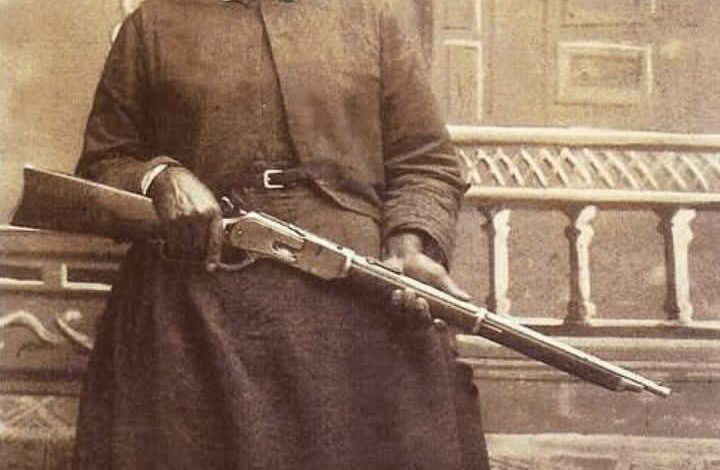Mary Fields: The Pioneering Postal Worker Who Became a Wild West Legend

America’s First African American Female Mail Carrier Conquered the Frontier
In the rugged landscape of 1890s Montana, one remarkable woman broke barriers and delivered hope along with the mail. Mary Fields, known throughout the American West as “Stagecoach Mary,” became the first African American woman to work for the United States Postal Service, covering over 300 miles weekly across treacherous frontier terrain.
Standing six feet tall with an unwavering determination, Fields earned her place in American history through dedication to her community and exceptional postal service delivery skills during the challenging era of westward expansion.
Early Life and Journey to the American Frontier
Born into slavery in 1832 in Hickman County, Tennessee, Mary Fields’ early years remain partially documented due to the historical challenges of slave record-keeping. Historical accounts suggest her mother worked as a house servant while her father labored in the fields of a Tennessee plantation.
Following the Civil War and emancipation, Fields gained her freedom in her thirties and embarked on a journey that would take her across America. She initially found employment aboard the steamboat Robert E. Lee, working as a domestic staff member while traveling the Mississippi River.
Her life took a significant turn when she secured a position as a household servant for Judge Edmund Dunne in Ohio. This employment opportunity introduced her to Mother Amadeus, Judge Dunne’s sister and Mother Superior of the Ursuline Convent in Toledo, Ohio. Mother Amadeus recognized Fields’ strong work ethic and invited her to join the convent as a groundskeeper.
Western Adventure and Religious Service
In 1885, destiny called Mary Fields westward to the Montana Territory. Mother Amadeus had established St. Peter’s Convent in the wilderness of Montana, complete with a children’s boarding school. When Mother Amadeus fell seriously ill with pneumonia, she specifically requested Fields’ assistance in nursing her back to health.
After Mother Amadeus’ recovery, Fields chose to remain at the frontier convent, taking on diverse responsibilities including supply transportation, visitor escort services, and agricultural maintenance. Her resourcefulness and courage became legendary when her supply wagon overturned after wolves frightened her horses. Fields single-handedly protected the valuable supplies throughout the night, demonstrating the frontier survival skills that would make her famous.
Historic Postal Service Career
Mary Fields’ most significant contribution to American history began in 1895 when she applied for a position with the United States Postal Service. At approximately 63 years old, she competed against younger applicants for the coveted mail carrier position serving the rural Montana territory.
Fields secured the job by demonstrating superior horsemanship skills, successfully hitching six horses to a postal coach faster than any other candidate. This achievement made her the second woman in United States history to operate a mail route and the first African American woman to work for the U.S. Postal Service.
Mail Route Operations and Frontier Challenges
As a star route carrier, Fields operated between Cascade, Montana, and St. Peter’s Mission, covering a demanding 17-mile daily route. Her weekly postal delivery service extended over 300 miles, encompassing multiple routes that sometimes stretched beyond 40 miles.
The Montana wilderness presented numerous challenges for mail delivery services. During harsh winter months when snow blocked mountain roads, Fields demonstrated extraordinary commitment by carrying mail sacks on foot, traveling over 30 miles on snowshoes to ensure postal service continuity.
Her dedication to reliable mail delivery earned widespread respect throughout the Montana Territory, where frontier communities depended on postal services for communication with the outside world.
Community Leadership and Business Ventures
Beyond her postal service career, Mary Fields established herself as a respected community leader in Cascade, Montana. After eight years of mail delivery service, she transitioned to operating a laundry business, demonstrating the entrepreneurial spirit common among successful frontier settlers.
Fields’ business acumen extended beyond commercial ventures. She became deeply involved in community activities, supporting the local baseball team and maintaining friendly relationships with neighboring families. Parents trusted her with their children, recognizing her protective nature and reliable character.
Legacy of the Montana Pioneer
Mary Fields’ impact on frontier Montana extended far beyond postal service delivery. In a town where she was the only African American resident, she earned universal respect and admiration. Local business owners, including the Cascade Hotel proprietor, offered her complimentary meals for life, demonstrating the high regard in which the community held her.
When fire destroyed her home and business, the entire town rallied to construct a new residence, illustrating the strong community bonds she had forged through years of dedicated service.
Historical Recognition and Cultural Impact
Mary Fields’ remarkable life story has inspired numerous historical accounts and cultural references. Hollywood legend Gary Cooper, who encountered Fields as a child in Montana, later memorialized her contributions to American frontier history, describing her as “one of the freest souls to ever draw a breath.”
Her death on December 5, 1914, marked the end of an era. The funeral service drew one of the largest gatherings in Cascade’s history, reflecting the profound impact she had made on the Montana frontier community.
Conclusion: Pioneer of Postal Service and Civil Rights
Mary Fields’ story represents more than individual achievement; it embodies the spirit of American frontier determination and the breaking of racial and gender barriers in the late 19th century. Her career with the United States Postal Service paved the way for future generations of women and minorities in government service.
Today, Mary Fields is remembered not only as a pioneering postal worker but as a symbol of courage, community service, and the American dream realized through determination and hard work. Her legacy continues to inspire those who learn about her remarkable journey from slavery to becoming a celebrated figure in Wild West history.
Mary Fields’ story reminds us that American history is filled with remarkable individuals who overcame tremendous obstacles to serve their communities and break barriers for future generations.